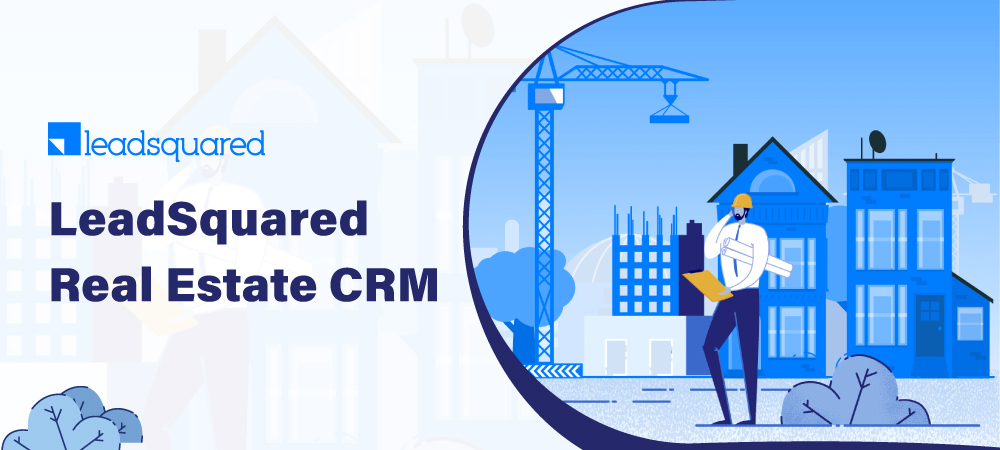
Real estate has been one of the worst affected verticals by the pandemic. However, it has always emerged to be very resilient to the bubble, boom, and collapse. There have been several instances to pride the rigidity of the real estate sector and its sales. For instance, the 2007 real estate crash, the 2011 recession, or the 2015-16 slump – real estate has revived every time.
The reason real estate has survived the dynamic market is its flexibility to adapt. Successful realtors have adopted the digital sales model to suit their customer preferences. Thus, the time is ripe for you as well to try out these real estate sales strategies to boost conversions.
Current Market Projections
The real estate sector has seen a variation in demand over the past couple of months. In other words, the need for office spaces and urban accommodations is dependent on environmental conditions. As a result of business picking up, realty sees a surge in demand in July-September. The construction industry is expected to reach Rs. 65,000 crore (US$ 9.30 billion) by 2040. Experts envision that the real estate sector is going to contribute 13% to the country’s GDP by 2025. These numbers prove the rapid growth – the industry foresees. At the same time, it indicates a fierce competition between players in the industry.
The top real estate organizations trust LeadSquared’s Real Estate CRM to sell properties faster. We have compiled the learnings and best industry practices in a Real estate sales EBook.
But first, let us understand – what is a real estate CRM. We will also see how firms use it to increase real estate sales.
What Is a Real Estate CRM, and Why do Organizations Use it?
A real estate CRM is a robust out-of-the-box solution to speed up real estate sales. The main motive of sales and marketing teams for any real estate firm is to get new customers. Real estate CRMs are tailor-made according to organizational needs.
A CRM software makes it easier to connect with customers and helps visualize and segregate leads based on:
- Their likes/dislikes
- Spending patterns– by understanding their interests
- Tracking their activities
- Identifying their intent
The number of sales conversions differentiates between a successful agent and an underperforming one. A Realty CRM helps bridge the gap between both and increases agents’ productivity.
An end to end, real estate CRM consists of:
- Lead generation
- Managing property inquiries
- Automating booking
- Agent/Sales Reps Management
- Site visit operations
- Managing projects
It also includes:
- Lead activity tracking
- Timely follow-ups
- Developing efficient marketing campaigns
- Productive insights and analytics
CRM maps the entire customer journey with zero lead leakage.
Why is Real Estate CRM Important for Sales?
A CRM for real estate is essential for realtors and brokers. It is because it serves as a unified solution to knit multiple data points present in the vertical.
Real estate involves both investment and emotional value. Here, client meetings are frequent, and one cannot afford to miss out on them. Property managers waste a lot of time on unnecessary follow-up phone calls. They can rather spend this time attending real-time inquiries.
Another reason why real estate organizations should consider a CRM is for convenience. Purchasing properties require a lot of documentation and collateral. Sharing them over emails, posts, etc. create multiple instances of the same document. It is again a hassle to manage if any paper or information requires changes.
A CRM connects all the parties involved in the deal.
How does Real Estate CRM Accelerate Sales?
1. Effective Lead Capturing
It can get challenging to manage leads while using traditional lead acquisition methods. One of the biggest challenges is to miss out on prospects. It happens when you run multiple marketing campaigns running on various online and offline channels.
A real estate CRM software helps capture leads from all the sources. It includes websites, landing pages, and third party website portals. You can even upload your lead data to the CRM system. Then the system auto-assigns them to the sales agents based on specific attributes. Real estate CRM provides a complete overview of all operations and effective channels. It also tracks if the agents are following up on specific leads, along with each lead’s status.
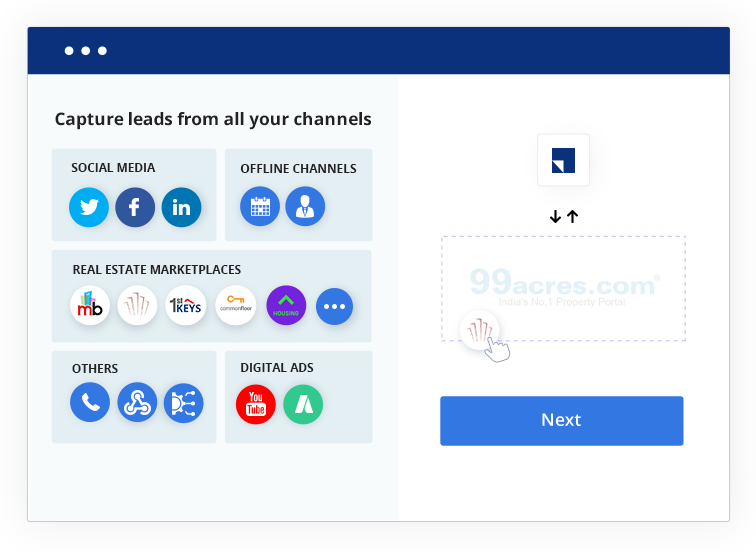
2. Out of The Box Integrations
A real estate CRM lets you integrate calls, chats, emails, and the mobile app.
Your call center agents can see all the incoming leads on a single dashboard. They can also see the history of interactions with a potential customer and map out the entire customer journey.
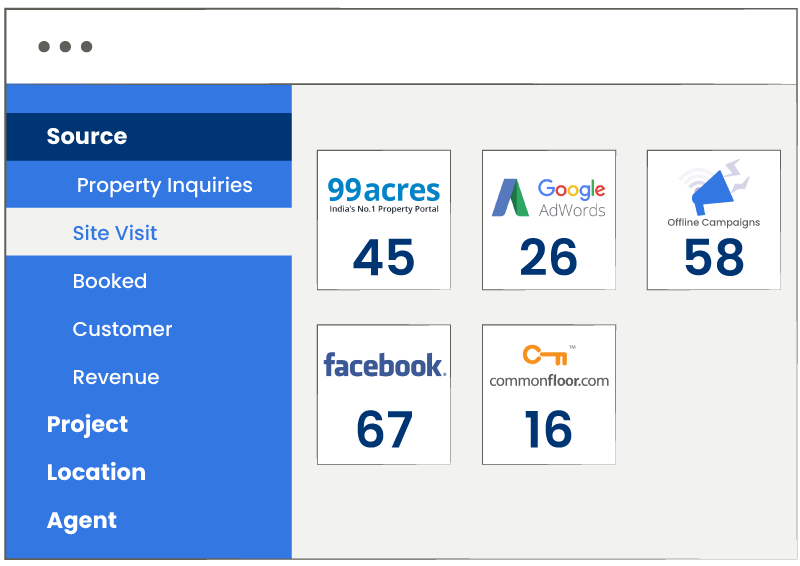
3. Lead Categorization and Distribution
Let’s say – you have got leads from various channels, such as online ads, TV, Radio, and Billboards. Now, you can view, assign, and follow up with the leads based on different category buckets. You can distribute them to agents based on location, availability, demographics, financial status, etc.
CRM helps build strategy and personalize communication. For instance, if a lead wants to buy a property in Kolkata, you can assign him to a sales agent from the same region.
In addition to lead categorization and segmentation, you can send automated emails and SMS through the portal.
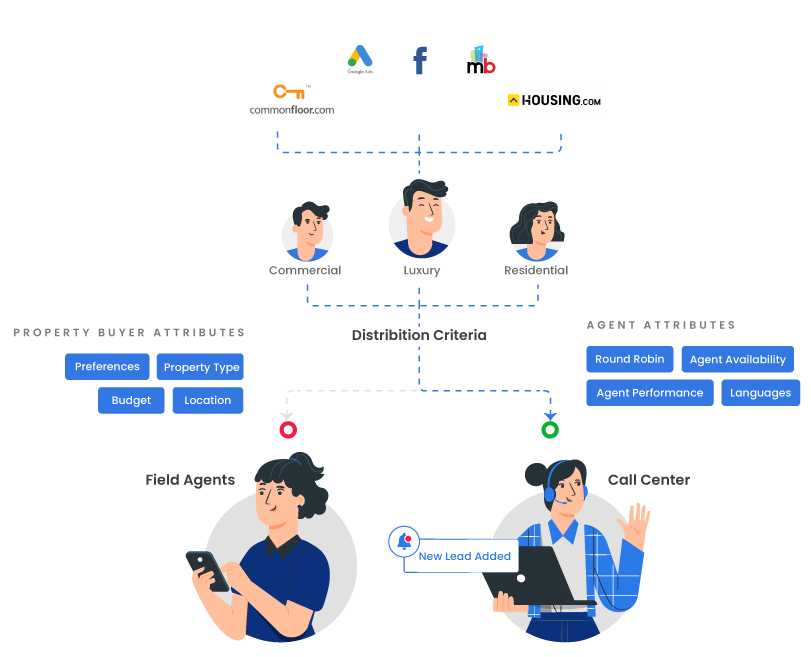
4. Managing Channel Partners and Brokers
With the help of a custom portal feature, you can create different portals for prospects and agents. An agent portal helps manage the sales commission structure. It also lets you handle leads coming from channel partners, brokers, and other real estate companies. The CRM notifies you if an agent or broker arranges a client visit or gets a lead. This portal helps track quality and keeps a tab on conversions through these partners.
The portal for prospects helps store client information online, making the process paperless. Thus, the customer portals ensure that applicants can submit and e-verify documents online. Moreover, Applicants can resume their application anytime. It, therefore, enhances prospect experience and saves your agents’ time. You can also track such activities.
Learn the strategies to boost you real estate sales in this ebook.
5. Lead Scoring
This feature helps sales teams identify the best opportunities for closing a deal. A real estate CRM, using built-in criteria, defines leads as high, medium, and low priority. This way, your sales agents would know whom to attend to first at any moment.
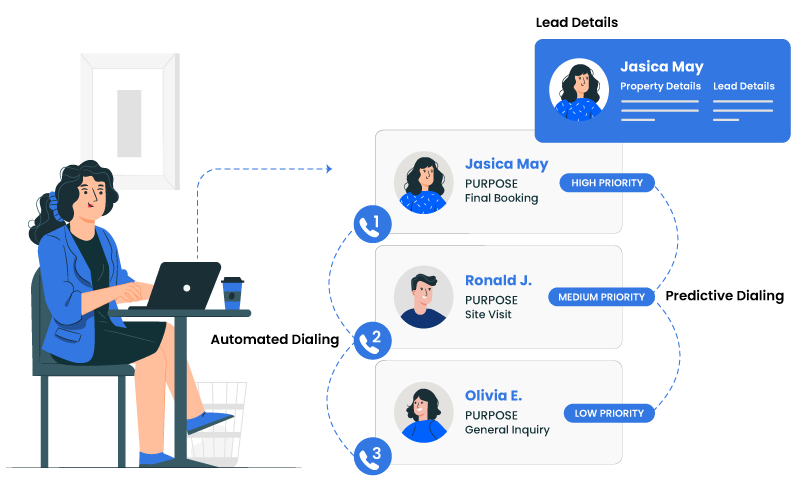
6. Mobile CRM
An efficient CRM provides flexibility. It is possible with the help of mobile apps. A real estate CRM should enable your sales team, property managers, and brokers to respond to client inquiries at any given point. A mobile CRM incorporates all features present on the website. It helps automate and run the business, even when they are away from the office.
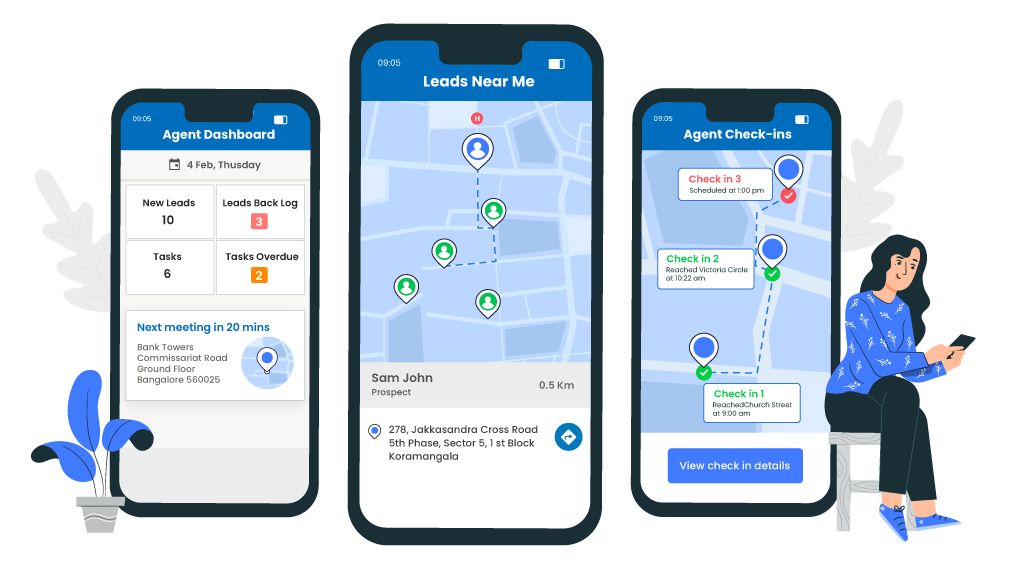
7. Site Visit Planner
A real estate CRM lets you plan your agents’ daily calendar based on the prospects assigned to them. It keeps everyone informed about the scheduled site visit. The system also sends automated emails/SMS to prospects. It thus ensures that your customers never miss out on the site visits.
You can also track your feet-on-street agents’ activities with geo-tracking and geo-fencing features. It ensures that your agents are adding correct information about client meetings. Plus, the daily plan calendar helps site managers and real estate agents stay on the same page – always.
Bonus – Actionable Insights
Actionable data helps make the best decision. A CRM helps track the return on investment and analyze raw data and draw meaningful insights from it. This helps organizations make well-informed decisions. An ideal CRM software for realtors enables them to analyze all:
- Leads
- Campaign performance across regions
- Agent performance and everything between.
Based on quantitative reports, you can develop better strategies.
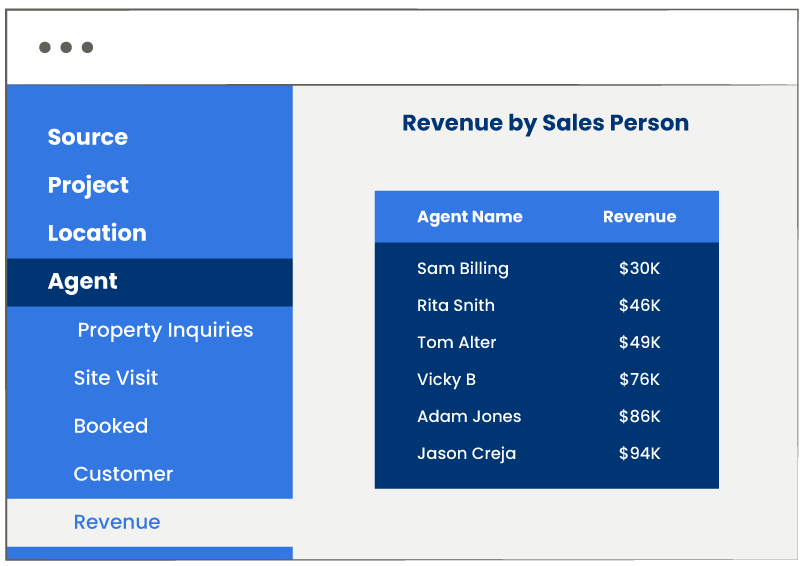
The Ideal Solution to Boost your Real Estate Sales
To sum up, successful Realtors consider real estate CRMs a necessity. Hence, they use it to never miss out on any opportunities to connect with potential customers. Thus, It helps them manage follow-ups with clients, manage projects, access real-time reports, and more. In addition, realtors can develop successful marketing campaigns with CRM software.
There are several touchpoints in a real estate deal, including bookings, sales, payments, and more. As a result, this can result in mismanagement. Hence, there is a need to unify all the processes.
A CRM is a favorable solution as you can track all necessary data needed to boost real estate sales. With LeadSquared Real Estate CRM software, you can increase your sales performance.
Having worked with top real estate organizations like Shapoorji Palloni, Alliance Group, Rohan Builders, Adarsh Group, MGH Builders, Kolte Patil, and more, we have compiled our learning into a real estate sales E-Book.
The following will be the takeaways from the Ebook:
- Increase agent productivity to boost digital sales?
- Capture inquiries, track them, and personalize communication-based on interest?
- Manage multiple opportunities and ensure visibility into the pipeline?
- Industry drift towards Zoom, Whatsapp, and other online modes of communication.
- Insights from Industry experts.

FAQs
There are 4 pillars of real estate namely:
1. Residential (Housing complex, Buildings)
2. Commercial (Offices)
3. Hospitality
4. Retail
1. Choose your specialty
2. Research and evaluate according to market
3. Proper marketing
4. Listing properties on real estate aggregators
5. Correct use of social media
6. Creating effective landing pages and websites
7. Encouraging referrals and increase word of mouth
8. Use the correct set of sales and marketing tools.
1. List your properties on third party real estate aggregators and establish partnerships
2. Create a brand image by concentrating on customer satisfaction first
3. Advertise in the right medium
4. Create a responsive website for all property listings
5. Choose and develop on your specialty.








